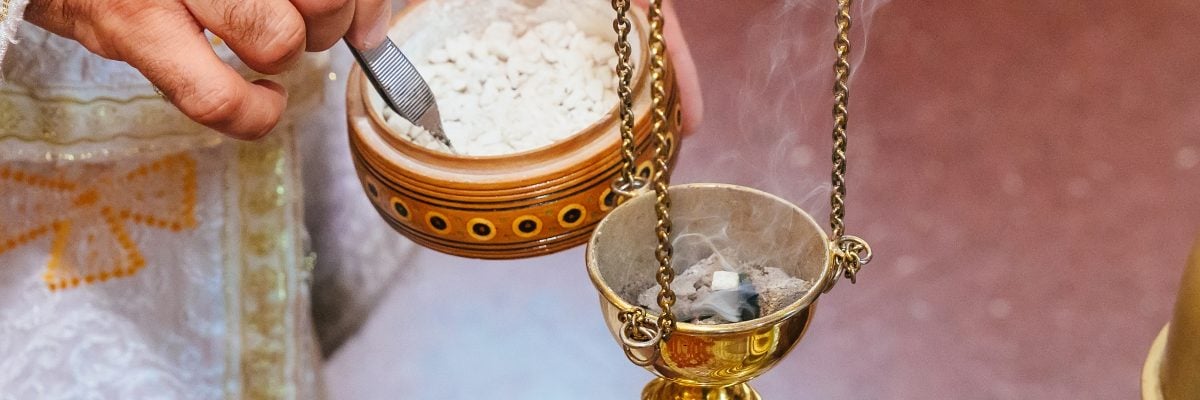
Some Christians, especially those who call themselves “non-denominational,” criticize Catholicism for its rituals, especially those of the Mass. They may argue that such ritualized forms of worship were only for the Old Covenant. Since we’re in the New Covenant, we don’t need all that stuff anymore.
The objection is based merely on the assumption that God didn’t intend such rituals to be a part of worship for his people in the New Covenant. To challenge that assumption, we can begin with passages in the New Testament that provide evidence that the early Christians viewed ritual as essential to their worship. See, for example, Acts 2:42, 1 Corinthians 10:16 and 11:24-29, and Matthew 28:19.
But I think there’s something more fundamental to the objection than a search for New Testament prooftexts. It’s more of revulsion to ritual itself.
This is what I’d like to address here.
There are no non-ritual cultures. The fact that every culture in human history has had rituals indicates that ritual corresponds to something in human nature.
Even American culture, which historically has tried rid itself of formality and tradition, has rituals. And I bet your non-denominational friend doesn’t mind them.
For example, we don’t think having rituals at graduation ceremonies, or in military procedures, is a bad thing. And most still think that rituals at weddings are important. I doubt your non-denominational friend would be fine with having the bride and groom just say, “Okay, we’re married. Let’s get on with it.’”
I think it’s safe to say that your friend will not deny that these secular rituals are good.
Your task now is to draw out the reason why your friend intuitively believes this. You can take your cue from St. Thomas Aquinas, who teaches that it’s befitting to man that he should “employ sensible signs in order to signify anything” (Summa Theologiae II–II:85:1).
The reason for this is that man is a body-soul composite. The body is essential to our personhood and thus is essential to our communicative powers. It makes sense, therefore, for us to use ritual—formal words and gestures by our bodies—to communicate the value of the things we’re celebrating, and how much we appreciate those things.
If it’s fitting to our human nature to use sensible signs when we’re communicating our appreciation and respect for worldly things, then it’s even more fitting to use sensible signs when communicating our appreciation and respect for God, since he is far superior in dignity to any worldly thing, and since we have a natural obligation to order all things—including our bodies—to him.
It was this sort of reasoning that led Aquinas to conclude,
Hence it is a dictate of natural reason that man should use certain sensibles, by offering them to God in sign of the subject and honor due to him, like those who make certain offerings to their lord in recognition of his authority (ibid).
There’s more to the story, however. Notice that in the above examples we recognize that not just any rituals will do. The magnitude of certain events demands words and gestures outside those of everyday life.
For instance, just to have graduating seniors come and grab their diplomas off a table set up in a parking lot would not be fitting for a commencement event. Merely having soldiers gather together in a field and saying with a bullhorn, “Hey guys, pretty good job,” and then sending them on their merry way doesn’t do justice to the value of their sacrifice. And couples who get married by an Elvis impersonator in Las Vegas dressed up in their camouflage outfits do not befit the dignity of marriage. (Although even in this scenario there is some formality!)
So, as human beings not only do we need to use sensible things to communicate how much we appreciate something, we sense that we need to use special words and gestures that befit the dignity of the thing being celebrated. And if this is true of secular things, how much more true is it of divine things?
According to Aquinas, the most befitting exterior gesture for worshipping God is sacrifice. He argues that other things that pertain to worship, such as “genuflections, prostrations, and other manifestations of this kind of honor” may also be shown to men, although when directed to God they are performed with different intentions (Summa Contra Gentiles 3:120). “But,” Aquinas continues, “it is agreed by any man that sacrifice should be offered to no person unless he is thought to be God or unless one pretends to think so.”
His rationale for this is that the exterior sacrifice signifies the interior sacrifice by which the human mind offers itself to God as the “principle of its creation,” “the author of its actions,” and “the end of its happiness.” Since such attributes can only be ascribed to God, St. Thomas concludes that sacrifice and worship ought to be given to God alone.
As to what must be offered in sacrifice, and how it is to be offered: God must tell us. In the Old Testament he told his people to offer a variety of things (animals, grain, etc.) in a variety of ways. The Catholic Church teaches that in the New Testament the what is Christ himself, and the how is under the appearance of bread and wine in the Mass.
Your intention here is not to persuade your friend that the offering of Christ’s one sacrifice in the Mass is the highest form of worship. That’s for another time. Your intention is simply to show that we are “naturally hardwired” for ritual, and ritual in the form of sacrifice is most befitting when it comes to the worship of God. Given this, your friend ought to at least see the reasonableness of the rituals of Catholic worship.



